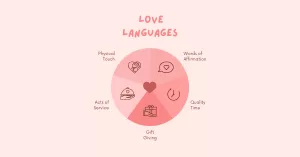Hey friends. We’ve all been there. You wake up thinking you’ll crush the day, but by noon, your brain feels like it’s been blenders. Tasks that should take minutes stretch into forever. Habits feel pointless. Your body’s fine, but your head? Trashed.
It’s not your imagination. Mental exhaustion is ccording to a 2023 NCBI paper, it’s a legit biological response. And guess what? Two areas in your noggin are actually calling the shots—do you power through, or throw in the towel? Sit tight—I’ll explain. This isn’t just another “stress is bad” rant. This is your brain during a breakdown, decoded in real time.
Let’s get real—what even is mental exhaustion?
You know that limp feeling after running? Like you can’t summon another sprint. Now imagine your brain doing that after three Zoom calls, an argument, or even cooking dinner. Mental exhaustion isn’t about physical tiredness—it’s your brain’s stress quota maxing out. And fun fact? Experts sometimes call this brain fatigue, cognitive fatigue, or yes—even “ mental fatigue”.
Does this surprise you? Honestly, it shouldn’t. Modern life is rough. You stream a Netflix show, scan 30 tabs, scroll FOMO social feeds, all while trying to calm your inner critic. As BetterUp points out, mental exhaustion shows up as a lack of focus, unshakable fogginess, or even emotional crash (the “I-want-to-cry-about-shoelaces” variety). Let’s break it down.
Your brain’s secret decision-makers: The Anterior Insula and Dorsal Anterior Cingulate Cortex
Hold that thought—why do some people lie to themselves that they’ll ‘deal with it later’, while others shut down completely? New research shows two neuro highlights: the anterior insula and the dorsal anterior cingulate cortex. These little badgers work together when your brain says: ‘pass’ or ‘try harder’.
Scientists scanned people’s minds doing grueling cognitive work, and—as NIH reports—both regions lit up like emergency sirens. The insula screams: “This stinks!” while the ACC weighs whether to keep frying or call a timeout. But it’s not just momentary laziness: it’s biology.
Here’s why it matters: if these regions misfire together for too long, your brain builds up a chemical called glutamate during intense activity, which is like leftover garbage in your mind after mental sprints. (Yes, this is why your brain yells “nooooo” when you calmly tweak your grocery list.)
Signs you’re not just ‘off’ – your brain’s waving red flags
Ever catch yourself mid-sentence thinking: Wait, did I just say that out loud? Or forget why I walked into the kitchen? You’re not losing your marbles. These are classic mental fatigue symptoms.
Watch out for:
Cognitive red flags: Slowed thinking. The brain fog will make you read a paragraph twice, forget deadlines, or read your coffee brew instructions like a Shakespeare mystery.
Emotional clues: Irritability about stuff that usually bounces off you. Like why the store had out-of-stock milk or a typo in your friend’s message. Suddenly nothing feels small. Everything’s huge, like paying a water bill at 2am.
Physical warnings: Headaches that won’t quit. Not-exhausted body but mind screaming for mercy. Sleep breaks up with you and starts showing up late or in chunks you can’t use.
Behavioral shifts: Apathy toward hobbies. Skipping plans you planned to look forward to. Or—plot twist—you zone out so hard, you automatically respond with “Yep, totally” at meetings you didn’t hear one word of.
If any of that sounds familiar, your mind probably needs to reboot. But here’s the twist: pushing harder might be what the entire system collapses. So let’s not see how many Roses you can eat before you pass out. There’s a better way.
Triggers: How did your brain end up in this state?
Mental exhaustion doesn’t just crash your brain like malware—usually it’s drag-and-dropped there by something you interacted with. Think of it as a slow spill, not a tech fail. The usual suspects:
- Too many brain pumps: Back-to-back emails, deadlines that feel like ropes, or even scrolling endless threads brainstorm billions of tiny hits to your mental fuel gauge.
- Digital pummel: You juggle Slack DMs, text drafts, Instagram stories, and a notebook full of sticky notes. As Healthline says, always-on tech is the caffeine that never lets your brain rest—just jitters you into brain-fatigue mode.
- Emotional drains: Conflict at home, professional missteps, or family stress that haunts you when trying to sleep. It’s not just “tired eyes”—it’s your brain doing 2am crunch sessions.
The interesting thing, though? Mental exhaustion used to be dismissed as “weakness.” But the real history? Way weirder. In the 1800s they actually thought constant fatigue meant someone was masturbating too much. Wild, right? (Needless to say, literal trash. We’re decades beyond that now.)
The slipknot: Why mental exhaustion can spiral into real trouble
We hate to break it—this isn’t just a “week-of-crazy schedule.” When left unchecked, mental exhaustion sneaks into your biology like an uninvited roommate. Here’s what happens when you really stretch it:
- Sleep Symposium Quits: Your brain cranks stress hormones, but doesn’t shut them down when trying to relax. Suddenly even a 9pm sleep intention turns into scrolling TikTok while your body passively wonders why it resists warm milk.
- Hit or Miss Immunity: Stress messes with your immune system, says Healthline. If breakouts or colds follow your busier months, now you why.
- Headquarters: Persistent tension headaches and unexplained migraines can blame mental fatigue. Your brain’s screaming doesn’t always stop on its’)
And here’s the waiting bomb you usually don’t think about: Ongoing mental exhaustion seriously hampers decision making.慢性脑疲劳还会导致过度冒犯或冲动错误。 Which can lead to mistakes worse than typos—like snapping at someone who’s really just trying to help.
When to pump the brakes: How this knowledge actually helps
Knowing these two regions control shut-offs doesn’t make AI-generated energy bars any more palatable, but it does tell us two important things:
1. You’re not oversensitive OR lazy. You’re just maxed out: Your brain hits a true biological sign on the highway: DETACK REST. Just like getting dizzy after a hangover, this is your body saying ‘not now, thanks’.
2. You CAN rewire your brain’s shut-off reflex: Researchers openly admit: mental fatigue sounds like something eventually unavoidable, but with enough recovery, your brain finds better pacing strategies for the long road. It’ll stop treating every to-do list like sparring with Mike Tyson.
How to Pay an overdue brain (not just a fancy word for rest)
Rest doesn’t mean watching YouTube until 3am. Real mental decompression means resetting your brain’s batter to neutral. Here’s what actually works:
- Golden 20s: Put your phone out of reach for 20 minutes. Seriously. Yep, just step away. This NCBI study shows even short digital breaks cut stress levels.
- Walk it off: We don’t mean a marathon. Just a walk around the block—or a cafe. Let your brain wander. One nurse I know recovered her ‘focus buffet’ by walking to work instead of driving. Her brain named this little fix the MVP.
- Therapeutic Safety Net: Talking through stress doesn’t mean you’re failing—it means you’re smart. Having a sounding board helps your brain unload what it’s compressed too casually.
Here’s the bold tip most don’t mention: trying less might help. If your brain’s terminals are flooded with glututamate (weird, right?), your best play is not harder, but fewer tasks. Like trimming out visual stimuli before bedtime, or using a Do Not Disturb app instead of marathon-listening to infinite podcasts.
You deserve sustainable motivation—not just a temporary caffeine bounce. And remember: taking a real brain breath doesn’t mean you’re hitting slow mode. It means you’re playing the long game—grit with boundaries. Ideally, that’s the version they put on your resume
When to handle it yourself—and when to work with backup
If your exhaustion is an occasional guest, solo relaxation should manage it just fine. But if brain fatigue overstays its welcome—a few weeks of fog etc.—it might link with mood disorders, Treatment Indiana reports difficulties in concentration and memory problems overlapping with anxiety and burnout symptoms.
This is when a therapist becomes part of your motivator squad. Not because you’ve failed, but because your brain needs strategic resetting. Might sound extreme, but hey—we bring the clogged arteries to fitness trainers. Why treat the confused brain like it’s our personal software to debug quietly at 1am?
Quick question: Can mental exhaustion bust your entire day—or just the day’s vibe?
It depends. Sometimes a lazy morning and unscheduled power nap sends the brain DDR’s. Other times, the fog gets worse with regular beating from demanding projects or emotional whiplash from things life flings at us.
But here’s the kicker: knowing those two areas that control persistence can actually make you see the need for better conversations with yourself. Maybe you don’t need to cross stuff off the list today. Maybe perseverance sometimes means accepting the need to rest first. Real empowerment’s not always forcing extra stress onto your shoulders—it’s reading your system messages, then shutting down the unnecessary programs.
| Identifier | Emotional Exhaustion | Depression |
|---|---|---|
| Core cause | Accumulated psychological stressors (work, parenting, social conflict) | Neurochemical imbalance, trauma, chronic health conditions |
| Mental fog + slow thinking? | Yes, but usually triggered by specific events | Yes, but may lack direct life trigger |
| Does rest help? | Usually lifts confidence, clarity, and coherence | May not help unless primal cause is managed |
| Brain fatigue or a deeper issue? | In the moment: yes. Long-term?: Look into burnout. | May involve deeper mental health shifts; dive into emotional states over time |
Final Thought: Rest isn’t defeat—it’s your brain demanding management
Your brain arches its back like a cat every time you hit a project deadline, right? Well, it’s not because you’re weak. It’s because those two regions we talked about—the anterior insula and ACC—are mass panels flickering in protest.
You’ve been managing in overdrive for ages, no wonder the breaks slack. If you keep this in check with a few rewinds and a good reality check for work-life balance? You’ll experience mental agility you thought vanished when adulthood stuck you with rent and relationships and adulthood alone made you say: ‘Yeah, brain. We’ll address your pain later.’
If your brain fried once this month, it’s time to ask if your persistence deserves some gratitude. Take those 20-minute breaks, I almost cried from overwork this week Meanness confessed later to laughing three days straight, but still real.
You’ve given this article real attention today. I know, sometimes even hitting this site feels overwhelming. So I want to ask: What’s one way you’re going to protect yourself this month? Tell me in the comments. Let’s keep the realness flowing and the science meaningful. (You are human. Your brain deserves recovery—your career too.)
Stay tuned because next week, we’re spilling the tea on how Sandra made it through her burnout with just a daily stop-watch and cloud journaling. Spoiler: It got better.

























Leave a Reply
You must be logged in to post a comment.